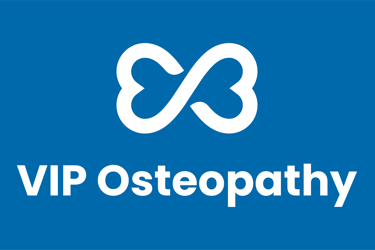Headaches and migraines
What you need to know
VIP Osteopathy - Keilor
2 min read
Headaches can feel like a frustrating mystery. Sometimes they come on gradually, other times they hit without warning. For some people, it’s a dull ache at the end of a long work day; for others, it’s a debilitating migraine that interrupts life completely.
While headaches are incredibly common, they’re not all the same. Understanding what type of head pain you’re experiencing can make a big difference in how you manage it and if osteopathic treatment may be able to help.
The Different Types of Head Pain
Not all headaches are created equal. Getting a clear understanding of the source of your symptoms (especially if they’re frequent or worsening) is essential for effective management. Here are some of the more common types of headaches:
Tension-Type Headaches
These are the most frequent kind. They usually feel like:
A tight band or dull pressure around the forehead or back of the head
Ache that builds slowly and can last for hours
Triggered by stress, muscle tension, or eye strain
Cervicogenic Headaches
These originate from structures in the neck and are often mistaken for other types:
Pain that starts in the neck and radiates to the head or behind the eyes
Often aggravated by neck movement or poor posture
Can feel one-sided and persistent
Migraines
A more complex neurological condition, migraines often involve:
Throbbing pain, usually on one side of the head
Sensitivity to light, sound, or smell
Nausea or visual disturbances (auras)
May last for hours to days, and can significantly impact daily function
Other Types of Headaches
Cluster headaches: Intense pain around one eye, often occurring in patterns or “clusters”
Sinus-related headaches: Often accompanied by nasal congestion and facial pressure
Common Triggers and Contributors
Headaches can be influenced by a range of physical, lifestyle, and environmental factors. Understanding your unique combination of triggers is key, and that’s where a thorough osteopathic assessment may help. Common triggers may often include:
Postural strain: Long hours at a desk or on devices can overload the neck and shoulder muscles
Jaw tension and clenching (especially during sleep or stress)
Dehydration
Hormonal changes
Poor sleep or sleep position
High stress or nervous system dysregulation
Sensory overload from light, noise, or screens
Poor breathing mechanics, especially chest-dominant or shallow breathing
Supporting Your Recovery—The Osteopathic Way
At VIP Osteopathy, we support patients experiencing headache and migraine symptoms by looking beyond the surface. We work holistically, recognising that headache and migraine symptoms may often stem from multiple interconnected factors, including muscular imbalances, posture, breath, and stress.
Depending on your presentation, treatment might include:
Releasing tension in tight muscles of the neck, shoulders, jaw, and upper back
Gentle joint techniques to improve mobility and reduce neural irritation
Cranial osteopathy to address deeper structures and support the nervous system
Postural education to support healthy movement patterns and desk ergonomics
Breath coaching or nervous system regulation strategies to reduce recurring triggers
Personalised management plan including home exercise plan, stretches, lifestyle recommendations and headache tracking
We may also collaborate with other health professionals where needed, because when it comes to headaches, a team approach can make all the difference.
What You Can Do to Feel More in Control
While identifying and addressing the root cause is ideal, a few practical strategies can offer relief in the meantime—and become even more effective when combined with tailored treatment.
Stay hydrated—dehydration is a surprisingly common trigger
Prioritise sleep and try to keep a consistent routine
Check your posture at work or during phone use
Try gentle neck and upper back mobility exercises
Practice jaw awareness, especially if you notice clenching during the day
Use a headache diary to note when pain occurs and identify patterns
Recurring head pain is not something you have to "just live with." Whether you’re navigating tension headaches, cervicogenic patterns, or a more complex migraine history, support is available, and it starts with understanding the bigger picture.
Whether it’s tension, migraine, or something in between, we’re help you understand what’s going on and support you in feeling better.


Contact us
Address: Consulting out of The Sports Recovery Hub
767 Old Calder Highway, Keilor, VIC, 3036
Telephone: 0476 807 144
Email: hello@viposteopathy.com.au
© 2025. All rights reserved.


